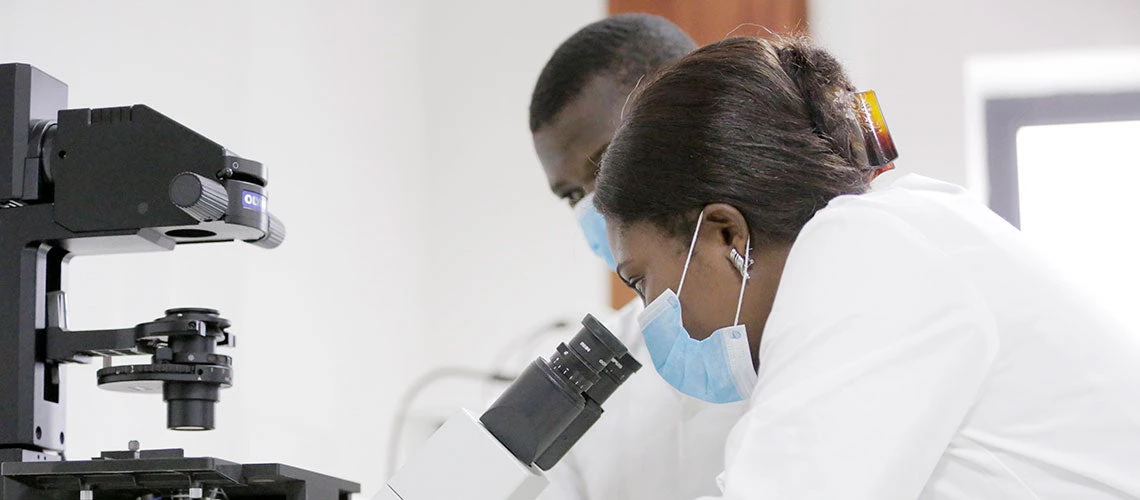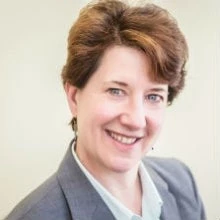 Several World Bank-funded Africa Centers of Excellence are contributing to the fight against COVID-19 and drawing on regional scientific research.
Several World Bank-funded Africa Centers of Excellence are contributing to the fight against COVID-19 and drawing on regional scientific research.
Many African countries are all too familiar with the social and economic upheaval posed by outbreaks of infectious diseases. Recent experiences with Ebola are fresh in peoples’ minds across West and Central Africa, as are those with TB and HIV/AIDS in Southern Africa. As a result, African countries understand the need for regional coordination in overcoming public health challenges. The World Bank Group has responded swiftly to each of these health emergencies – often through a regional response designed to counter immediate threats while also strengthening countries’ capacity to be proactive in detecting and responding to outbreaks.
There are important lessons to draw from these experiences as we combat the coronavirus pandemic (COVID-19).
First, leverage existing regional networks and operations to catalyze an immediate, large-scale response.
Helping countries strengthen cross-border collaboration for detection and response to outbreaks is a long-standing priority of the Bank Group’s regional integration efforts in Africa. Large-scale investments, strong networks, and a joint vision among stakeholder countries are already in place. They are now being activated and scaled up quickly in response to COVID-19.
The Regional Disease Surveillance Systems Enhancement Program (REDISSE) – a $670 million operation across 16 countries of West and Central Africa – has quickly mobilized over $193 million to help 13 countries with entry-point surveillance, reinforced laboratory testing capacity, infection prevention and control, access to essential medical equipment and materials, and risk communication. Having responded to Ebola in the last few years, REDISSE has provided countries with early and immediate access to financing so that they can respond swiftly to emerging needs. Meanwhile, complementary country-specific financing is being mobilized from the World Bank’s COVID-19 Fast-Track Facility.
Similarly, in East Africa, governments are leveraging capacities established under the $128 million East Africa Public Health Laboratory Networking Project (covering Burundi, Kenya, Rwanda, Tanzania and Uganda) as they respond to the coronavirus. State-of-the-art laboratories located in the cross-border areas have benefitted from the latest technologies to test and identify diseases that pose a risk to public health. Wajir Referral Hospital, located in remote northeastern Kenya on the borders with Somalia and Ethiopia, has been designated a COVID-19 testing site and has capacity to process 60 to 100 samples in 24 hours. It represents how regional integration funding can be combined with government and country leadership to bring critical COVID-19 testing to the most vulnerable groups.
At the regional level, the Africa Centres for Disease Control and Prevention (CDCs), with support from a $250 million Bank operation, have been able to mobilize their infrastructure and networks quickly to counter the spread of COVID-19. In an exceptional response, the CDCs catalyzed health ministers in late February to ensure coordination in the face of the crisis. Training by the Africa CDCs has supported a rapid scale-up of testing and diagnostic capacity, from centers in only two countries in early February to centers in 43 countries now.
Second, maximize economies of scale for scientific collaboration across borders
Several Africa Centers of Excellence – a World Bank-funded regional operation – are making important contributions to the fight against COVID-19 and drawing on regional scientific research. These include the Africa Center of Excellence for the Genomics of Infectious Diseases (ACEGID) at Nigeria’s Redeemers University and the West Africa Center for Cell Biology of Infectious Pathogens (WACCBIP) at the University of Ghana, both of which are at the forefront in sequencing the virus. In collaboration with the Nigeria Center for Disease Control, ACEGID was the first to sequence the genome of COVID-19 in Africa; by completing this task within 48 hours it greatly reduced the 2-3 weeks it would take if samples were sent overseas. The sequencing is foundational for diagnostics and vaccine development, and its data is important to scientists and policy makers as they weigh policy actions and responses. ACEGID has also been mandated by the Africa CDCs to sequence all samples from member states of the African Union that lack sequencing capacities.
Third, while providing social support now, lay the groundwork for regional cooperation to support recovery of the economy and jobs – so essential for reducing poverty as we go forward.
Lockdowns and border closures are critical to flattening the curve of the COVID-19 pandemic. But they impede the livelihoods of people who depend on cross-border trade, many of whom are poor informal workers and women. The African Union and other regional institutions are rightly concerned about the negative social, economic, financial, and security impacts of these measures on communities. And the restrictions remind us that freedom of movement – whether across neighborhoods, countries, or borders – is the norm that we all hope to return to. It’s important to begin thinking now about how we can build back better to support more regional economic activity and trade.
COVID-19 presents a classic example of why regional coordination, cooperation, and integration are key to Africa’s future. Given the ease with which diseases can spread across countries, we will continue to draw on our regional programs to support countries in managing pandemic prevention and control. The virus knows no borders, and efforts to support regional coordination and cooperation will be essential to defeating it, both in Africa and around the globe.


Join the Conversation